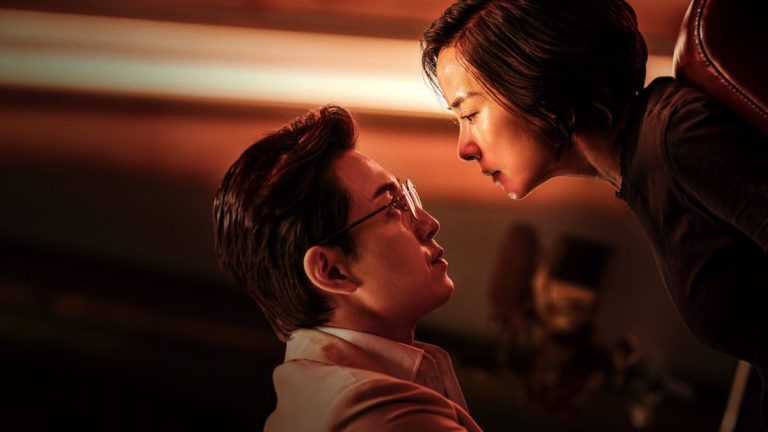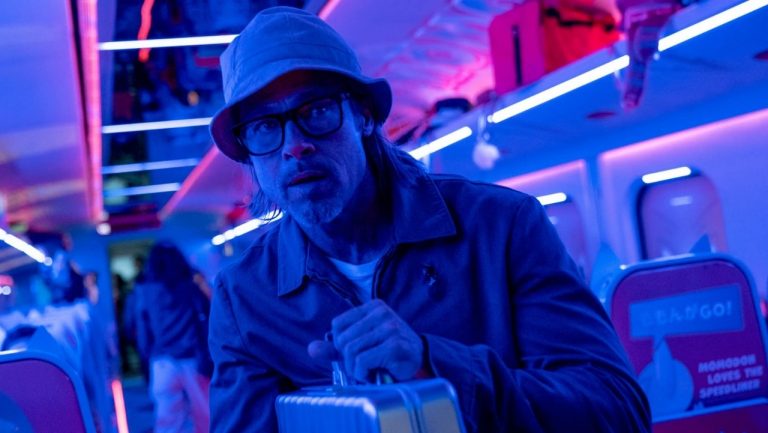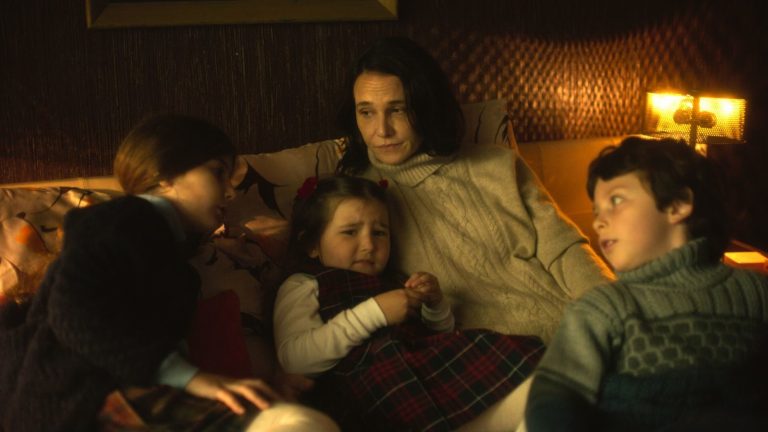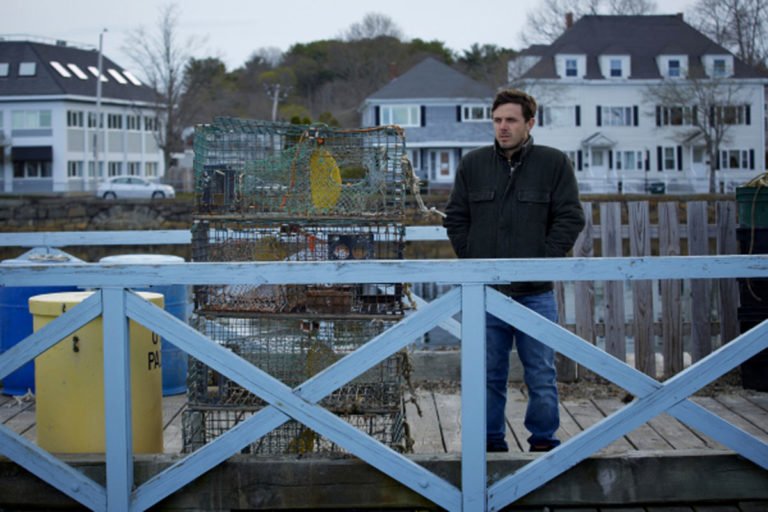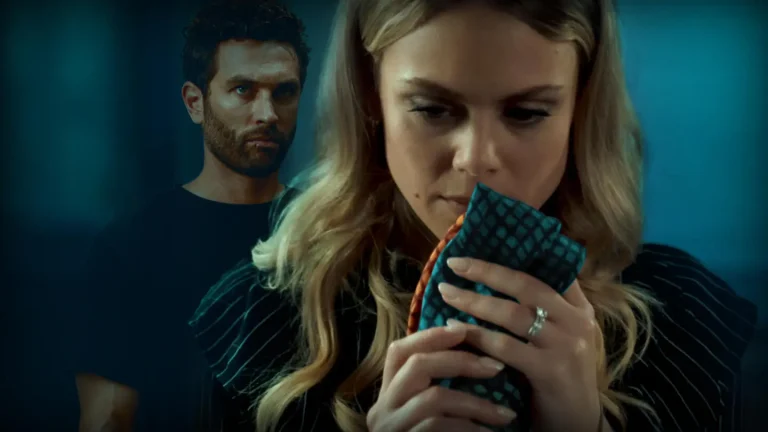“Mother Vera” is hued in moody, spectral shades. It is daubed in a deep melancholy that drips off the edges of several scenes. An emotional, inner violence gnaws at the protagonist, Vera. At the very outset, she states she didn’t want to be a nun. Her twenty years’ worth of monastic service came about through an assortment of various factors, many of which weren’t to her liking or volition but whose repercussions she was left to grapple with in the absence of alternatives. She had thought once her boyfriend got out of prison, she would leave the monastery. However, evolving circumstances turn out to be entirely different, extending her stay beyond what she could have possibly imagined. There’s heartbreak and rejection as her life skids off to an unexpected tangent.
Guilt also streaks her emotional, intimate reality. Vera reveals her jagged self to us in slow, measured steps. The innate dignity and quiet, unequivocal compassion with which directors Cécile Embleton and Alys Tomlinson treat her pained disclosure keeps us involved at every juncture of her journey, even if some points are conspicuously meandering and demand a clearer focus. It’s a dark, fraught past, prickled with reckless, terrible choices. The directors tenderly handle this in a tone that is simultaneously hushed yet scalding.
The film does feel a little inchoate in its withholding from exploring the possible relationships and friendships she might have made in all the years she has spent at the monastery. The austerity of service powerfully registers through the richly textured camerawork. The world captured within the monastic walls is somber, elegant, and prescriptive. Vera is freer and happier when she’s out of the confines of the monastery. On her visits to her family, she comes across as this dramatically different person- vivacious, teasing, and joyous. She blooms at her best and breathes when she is around animals, especially horses.
A moment of relative peace springs. For most of the monochromatic Belarussian countryside, the landscape is snowy and stark. There’s an unforgiving, bleak touch to the scenery, contrasted with Vera’s growing realization of the need to tackle directly and thereby let go of the guilt and shame that has been eating away at her for years. The sense of grieving isolation the natural environs bleeds is indicative of Vera’s own loneliness in not being able to loosen the binds to her past.
While the convent has been a source of solace for many, it seems to be holding Vera back from what she must do. As someone says, Vera has been a crucial help in how the former prisoners reconstructed their lives after serving their sentences. She has led them towards a sense of redemption and release, enabling them to shed the sins or errors of the past. But has she dealt with her own bruises? We sense an unrest within her. She has tried to repress it, trading it to soothe instead the bristling conscience of the ex-convicts.
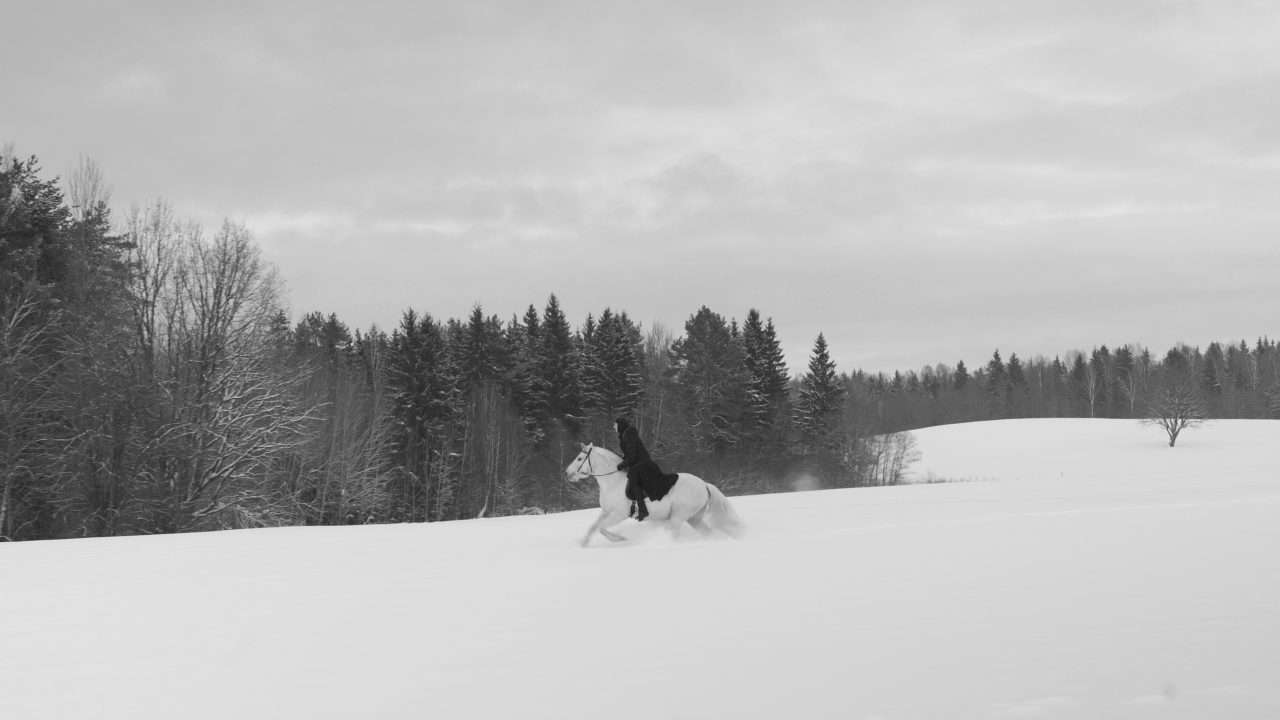
As someone who’s been in a state of denial about her past, laden with its own chaos and hurt, she has facilitated the healing of others when they have confronted the weight of their past actions. While we understand that it has been a long road for her leading up to the particular moment when she makes her final liberatory plunge, the film’s sporadic imprecision in honing that push toward her decision detracts from its force. Therefore, the turn from burying all her warring emotions to digging them out isn’t as clearly etched as it should have been. Of course, it is a rocky uphill path, full of trying bends.
One of the men who works at the monastery farm confesses that once you get used to the routine of life and service here, you cannot quite return to the outside world. “You fit here and not there.” This juxtaposes sharply with Vera’s decision to retract. She, on the other hand, is looking for freedom even if she is not sure of what it entails. Though the film is foggier about the critical curve in her journey, the directors are able to convey a translucent view of Vera’s battered soul.
She keeps much of her angst hidden, but the film transmits it with moving vigor. There’s a depth of pain to her. Without a bluntly delivered admission, the film alludes that she may be as emotionally tortured as those she is tasked with salvaging. She herself needed the spiritual rescue, which the monastery has provided to a certain degree, but it wouldn’t be wholly fulfilled unless she sees her past eye to eye.
The film triumphs in articulating her tightly coiled internal state, not so much through the shards of voiceover as in closely and nonjudgmentally following her trajectory. This is a gorgeously lensed, intensely intimate film, finely eking out a hidden subjectivity and gently trailing the protagonist’s deepest desires.


